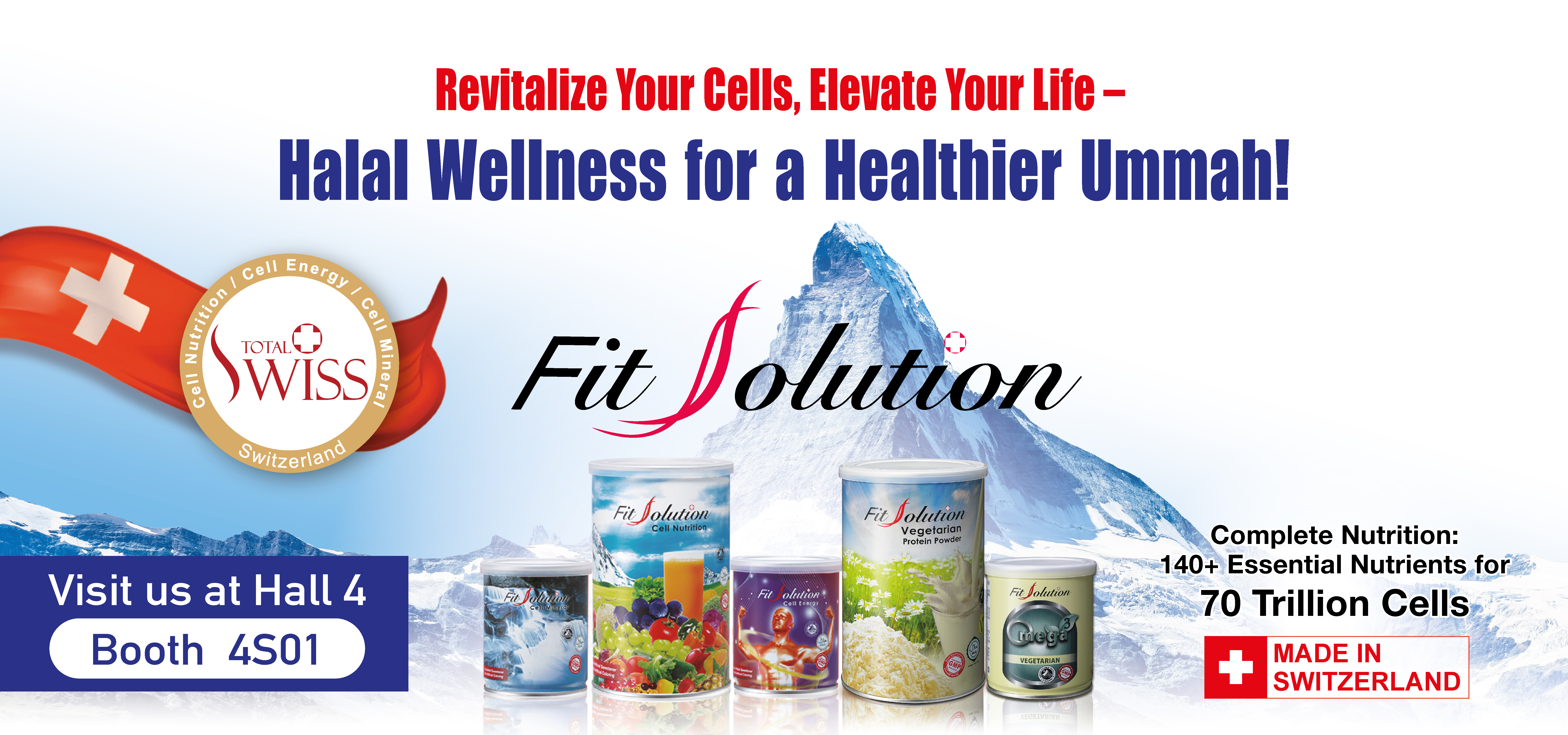Total Swiss is Set to Redefine the Future of Halal Wellness
With its mission to “Revitalize Your Cells, Elevate Your Life,” Total Swiss champions cellular health as the foundation of vitality, offering innovative Halal-certified solutions designed to optimise immunity, energy, and overall well-being.

As a leading advocate of Halal health solutions for a healthier Ummah, Total Swiss presence at MIHAS 2025 aims to spotlight the importance of wellness, innovation, and Halal integrity.
Central to its offerings is the Fit Solution Series, delivering over 140 essential nutrients directly to the bloodstream in 3 to 15 minutes via mucosal absorption. This targeted, rapid delivery system supports cellular energy, resilience, and proactive disease prevention.
Participation in MIHAS allows Total Swiss to engage directly with global buyers, distributors, and health-conscious consumers, demonstrate its unique health innovations, and expand its presence in international Halal markets.
Simultaneously, MIHAS benefits by showcasing the emerging Halal wellness sector, enhancing its role as a global hub for Halal innovation and lifestyle solutions.
Exclusively at MIHAS 2025, visitors can enjoy:
- Health Consultations by Nutritionists – Personalised advice to support your health journey
- Free Sampling – Experience the Total Swiss difference firsthand
Visit Total Swiss Marketing at Booth 4S01, MIHAS 2025, MITEC Kuala Lumpur, from 17 to 20 September 2025.
